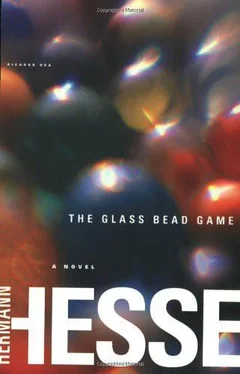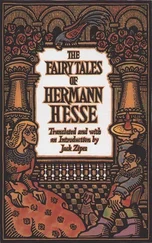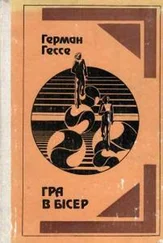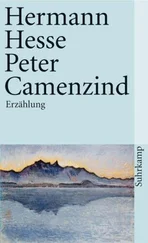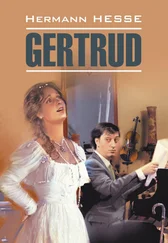What is the “Glass Bead Game”? In the idyllic poem “Hours in the Garden” (1936), which he wrote during the composition of his novel, Hesse speaks of “a game of thoughts called the Glass Bead Game” that he practiced while burning leaves in his garden. As the ashes filter down through the grate, he says, “I hear music and see men of the past and future. I see wise men and poets and scholars and artists harmoniously building the hundred-gated cathedral of Mind.” These lines depict as personal experience that intellectual pastime that Hesse, in his novel, was to define as “the unio mystica of all separate members of the Universitas Litterarum ” and that he bodied out symbolically in the form of an elaborate Game performed according to the strictest rules and with supreme virtuosity by the mandarins of his spiritual province. This is really all that we need to know. The Glass Bead Game is an act of mental synthesis through which the spiritual values of all ages are perceived as simultaneously present and vitally alive. It was with full artistic consciousness that Hesse described the Game in such a way as to make it seem vividly real within the novel and yet to defy any specific imitation in reality. The humorless readers who complained to Hesse that they had invented the Game before he put it into his novel — Hesse actually received letters asserting this! — completely missed the point. For the Game is of course purely a symbol of the human imagination and emphatically not a patentable “Monopoly” of the mind.
The Game, in turn, is the focal point and raison d’être of an entire province of the spirit called Castalia (from the Parnassian spring sacred to the Muses) and located in an unspecified future. (Hesse has indicated that he thought of his narrator as writing around the beginning of the twenty-fifth century.) But again Hesse makes it clear that he is not predicting a specific utopia but, rather, trying to represent the model of a reality that has actually existed from time to time in such orders as the Platonic academies or yoga schools. It is “a spiritual culture worth living in and serving,” he explained to one correspondent. Castalia, in other words, represents any human institution devoted wholly and exclusively to affairs of the mind and imagination. As such, the spiritual province of the novel constitutes the goal of a search upon which Hesse had been embarked for many years. But this last novel is at the same time the document of an intense personal crisis, for it depicts not only the fulfillment of a long sought ideal, but also its ultimate rejection.
Hesse’s literary career parallels the development of modern literature from a fin de siècle aestheticism through expressionism to a contemporary sense of human commitment. Born in the Black Forest town of Calw in 1877, Hesse in his youth reflected the neo-romanticism then prevalent among many writers of his generation in England, France, and Germany. The misty yearnings of his earliest stories and poems display the frank escapism of a young man who is not at all at home in the bourgeois reality of Wilhelmine Germany and who projects his dreams into a romantic kingdom that he locates, according to the title of one work, “An Hour beyond Midnight.” But the success of his first major novel, Peter Camenzind (1904), reconciled the young writer, at least temporarily, with a world that was prepared to bestow upon him the material rewards of literary fame. From aestheticism he shifted to the melancholy realism that marked his next poems and stories as well as the novels Under the Wheel (1906), Gertrude (1910), and Rosshalde (1914). Putting aside his romantic longings, he assumed the role of a settled family man who advocated in his fictions a bittersweet doctrine of renunciation and compromise.
But the war brought a radical change. Hesse, who had been living in Switzerland since 1912, found that his outspoken pacifism alienated many of his former friends and readers, who succumbed to the wave of martial exhilaration sweeping over Europe in August of 1914. Meanwhile, family and marital difficulties shattered the illusion of a happy life that he had carefully sought to preserve for some ten years. A lengthy psychoanalytic treatment at the hands of a disciple of Jung in 1916 and 1917 completed his disillusionment with his present state and the process of psychic re-evaluation. Hesse came to the conclusion that he had been living a lie and denying the authentic impulses of his own being. In 1919 he moved to the village of Montagnola, near Lugano in southern Switzerland, where he lived in relative seclusion until his death in 1962. Here he wrote most of the major works for which he has subsequently become famous and in which he sought to discover a more mature ideal of the spirit to replace that “reality” with which he had become disenchanted.
In several essays that he wrote around 1920 — most notably in pieces on Nietzsche and Dostoevsky — Hesse argued that men must seek a new morality that, transcending the conventional dichotomy of good and evil, will embrace all extremes of life in one unified vision. A later essay, “A Bit of Theology” (1932), outlines the three-stage progression toward this goal. The child, he says, is born into a state of unity with all being. It is only when the child is taught about good and evil that he advances to a second level of individuation characterized by despair and alienation; for he has been made aware of laws and moral codes, but feels incapable of adhering to the arbitrary standards established by conventional religious or moral systems since they exclude so much of what seems perfectly natural. A few men — like the hero of Siddhartha or those whom Hesse calls “the Immortals” in Steppenwolf — manage to attain a third level of awareness where they are once again capable of accepting all being. But most men are condemned to live on the second level, sustained only by a sense of humor through which they neutralize oppressive reality and by an act of the imagination through which they share from time to time in the kingdom of the Immortals, the realm of spirit.
Hesse’s novels trace this struggle in the lives of heroes set against backgrounds from different ages of civilization. In each case the triadic rhythm of development is the same; only the historical circumstances differ. In Demian (1919) the milieu is that of the student generation of the turbulent years immediately preceding World War I. The hero of Siddhartha (1922) progresses through the three stages in the classical India of Buddha. Steppenwolf (1927) ironically depicts the dilemma of a European intellectual confronted with the tawdry pop culture of the twenties, while the dual protagonists of Narcissus and Goldmund (1930) act out their individuation in the waning of the Middle Ages. In the thinly veiled symbolic autobiography of The Journey to the East (1932), finally, the hero joins a League of Journeyers to the East in a timeless present set sometime after “the Great War.” Each novel postulates the possibility of a spiritual kingdom toward which the hero strives, whether he reaches it or not.
Castalia is clearly another attempt, this time projected into the future, to represent this same ideal: a symbolic realm where all spiritual values are kept alive and present, specifically through the practice of the Glass Bead Game. In this sense, then, the novel was originally envisaged as yet another variation in Hesse’s continuing search for a spiritual dimension of life, for it depicts a future society in which the realm of Culture is set apart to pursue its goals in splendid isolation, unsullied by the “reality” that Hesse had grown to distrust.
The Glass Bead Game was a continuation and intensification in another sense as well. Hesse was aware of the fact that his earlier novels had employed the same basic pattern of individual development against different historical backgrounds. He now decided to incorporate this structural tendency into a single new novel. The idea that came to him, he wrote to a friend in 1945, was “reincarnation as a mode of expression for stability in the midst of flux.” Long before he began writing, he remarks, he had in mind “an individual but supratemporal life… a man who experiences in a series of rebirths the grand epochs in the history of mankind.” The novel, in other words, was to consist of a number of parallel lives, ranging through time, presumably, from the prehistoric past to the remote future. But the emphasis was to be distributed evenly among the parts. “The book is going to contain several biographies of the same man, who lives on earth at different times — or at least thinks that he had such existences,” he wrote to his sister in 1934. Around this time Hesse wrote and published separately three such biographies: one about a prehistoric rainmaker; one set in the Golden Age of India; and a third depicting an episode from the patristic period of the early Christian church. (A fourth life, set among the Pietists of eighteenth-century Swabia, occupied Hesse for almost a year, but was never published during his lifetime.)
Читать дальше
